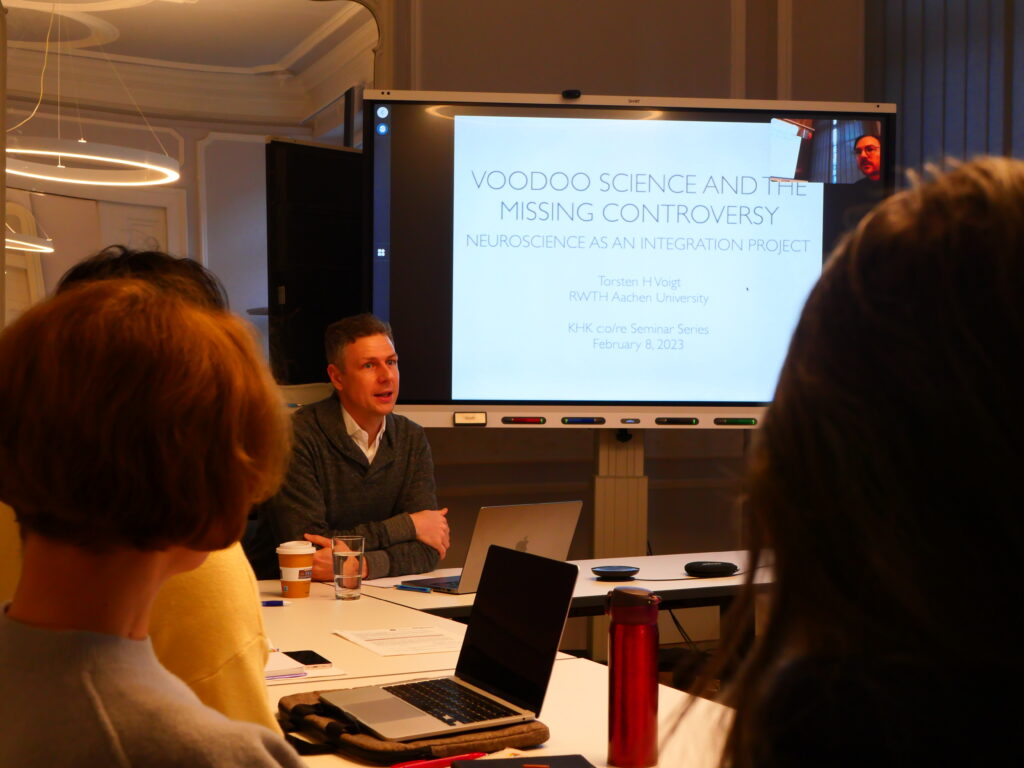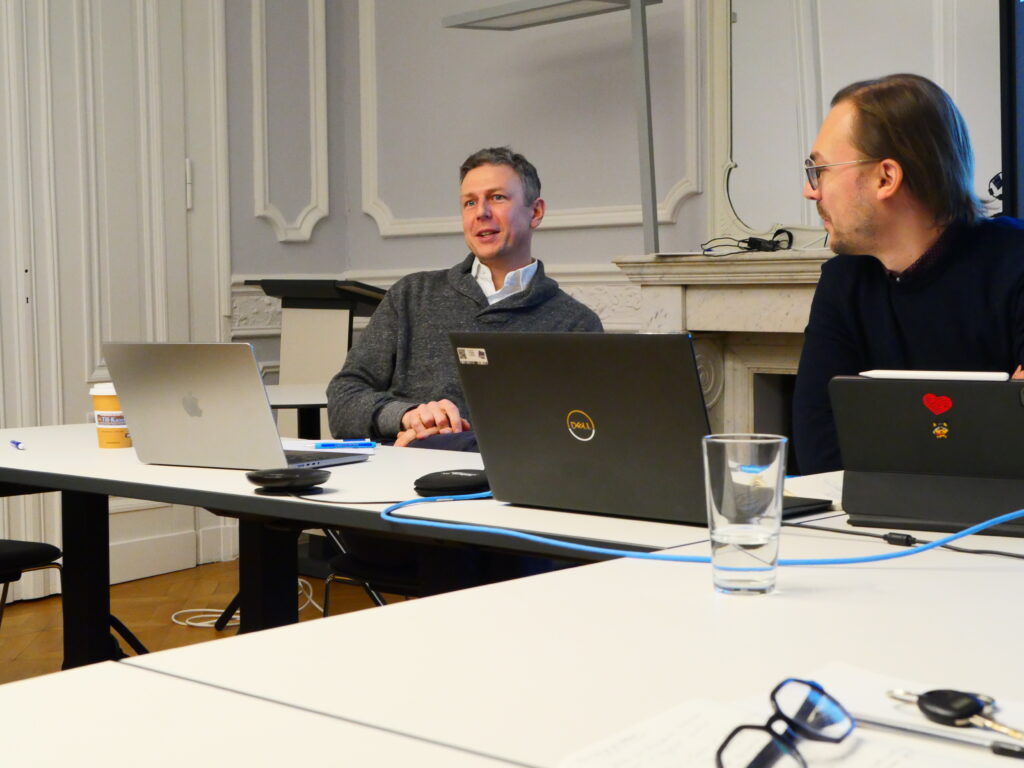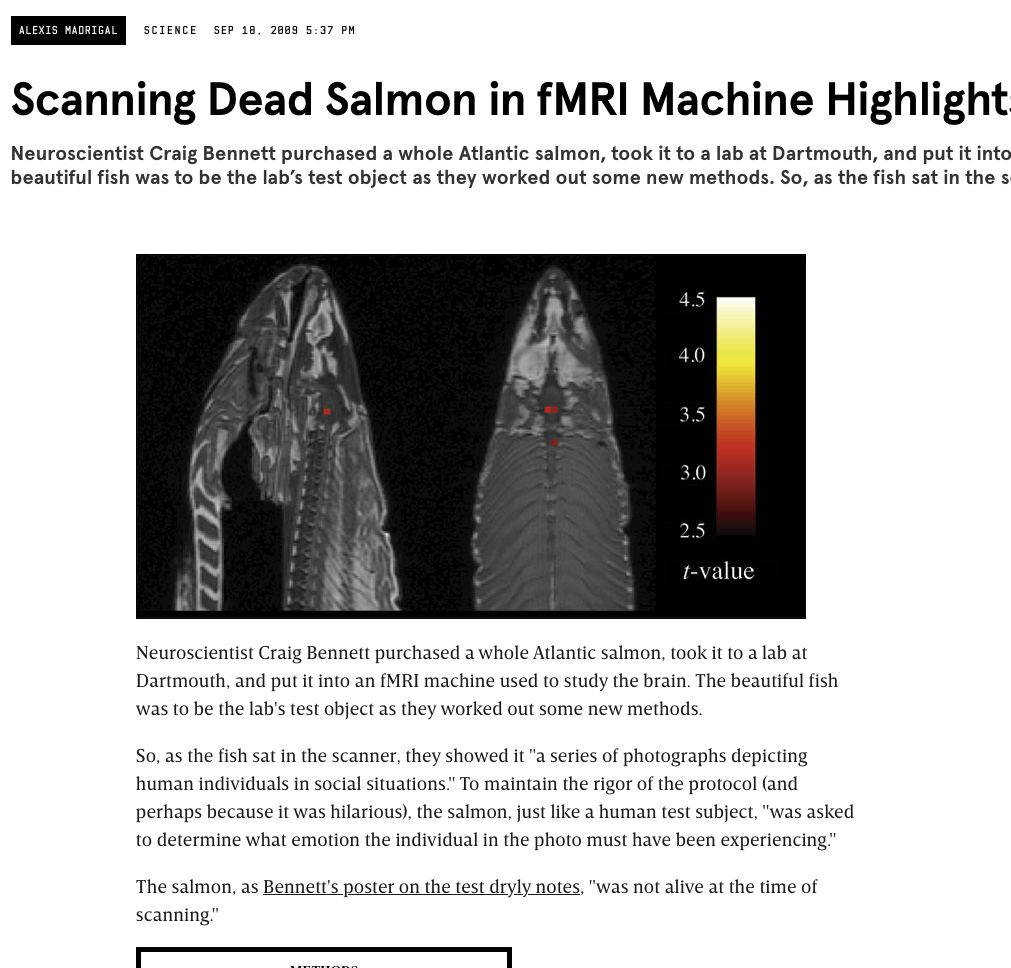Torsten H. Voigt on voodoo science, dead salmons and the Human Brain

On February 7, Professor Torsten H. Voigt, the Dean of the Faculty of Arts and Humanities at RWTH Aachen University, delivered a talk in the c:o/re lecture series on what has been referred to as “Voodoo science” . Professor Voigt argued that, as in science and philosophy in general, controversy functions as a driver for advancement and innovation in neuroscience. However, he explained, neuroscience as a discipline and community exhibits instrumental rationality in managing and avoiding meaningful controversy. This led to what may be termed an eclipse of reason, damaging or even destroying progress in the scientific field.
Neuroscience is enjoying great popularity, both within academia and in pop culture. and popular science. During the 1980s neuroscience cognitive became the new science of mind, by having incorporated molecular biology. This resulted in a study on a molecular level of how we think, feel and learn. Seen in this way, advertising of consumer goods, for example, reflects a connection established in pop culture between human capacities for creativity and the brain organ. These construals are not only employed in somewhat amusing ways in advertising, but they point to an unjustified optimism in academia. One reason for which this may be allowed, but which also raises suspicions about neuroscientific methods, might have to do with the very low reproducibility herein.
An important example that illustrates this type of process leading to an eclipse of reason, as Voigt argues, is observed in how the otherwise noted study by Vul et al. (2009) was largely ignored in neuroscientific research. The reluctance regarding this study was arguably met with from the start is suggested by the respective journal’s editorial board recommnending removing the expression “voodoo correlatons” from the title of the paper, as initially proposed by the authors.
Vul et al. (2009) observe mysteriously high correlations are claimed in neuroscientific research. This is explained by the fact that many experiments looked at a specific brain region instead of the whole brain as such in relation to behaviour. Despite drawing attention, the study has been ignored (low number of citations) by the community of neuroscientific researchers.
A prototype for signaling controversial matters in neuroscience, setting the tone of doing so in a controversial manner, is the famous “dead salmon” paper by Bennett et al. (2009), who ironically criticised neuroscientific methods by claiming correlations by observing supposed neural activity through fMRI in a dead salmon. The salmon, which “was not alive at the time of scanning”, “was shown a series of photographs depicting individuals in social situations with a specified emotional valence.” As neural activity could arguably be noticed in the image resulting from the scanning, the authors ironically claimed neural correlates of interspecies perspective taking”.
Another example that displays the eclipse of reason tendencies in neuroscience regards the Human Brain project, massively funded by the European Union. Arguably, the Human Brain project is not so much about the brain, as much as it turned out to be an IT infrastructure development project (Nature 2015). With such an example in mind, Voigt construes neuroscience, broadly, as an integration project

References
Vul, E., Harris, C., Winkielman, P., Pashler, H. 2009. Puzzlingly High Correlations in fMRI Studies of Emotion, Personality, and Social Cognition. Perspect. Pychol. Sci. 4(3):274-90.
Rethinking the brain. 2015. Nature 519, 389. https://doi.org/10.1038/519389a
Bennett, C.M., Miller, M.B., Wolford, G.L. 2009. Neural correlates of interspecies perspective taking in the post-mortem Atlantic Salmon: an argument for multiple comparisons correction. NeuroImage, 47, S125.



